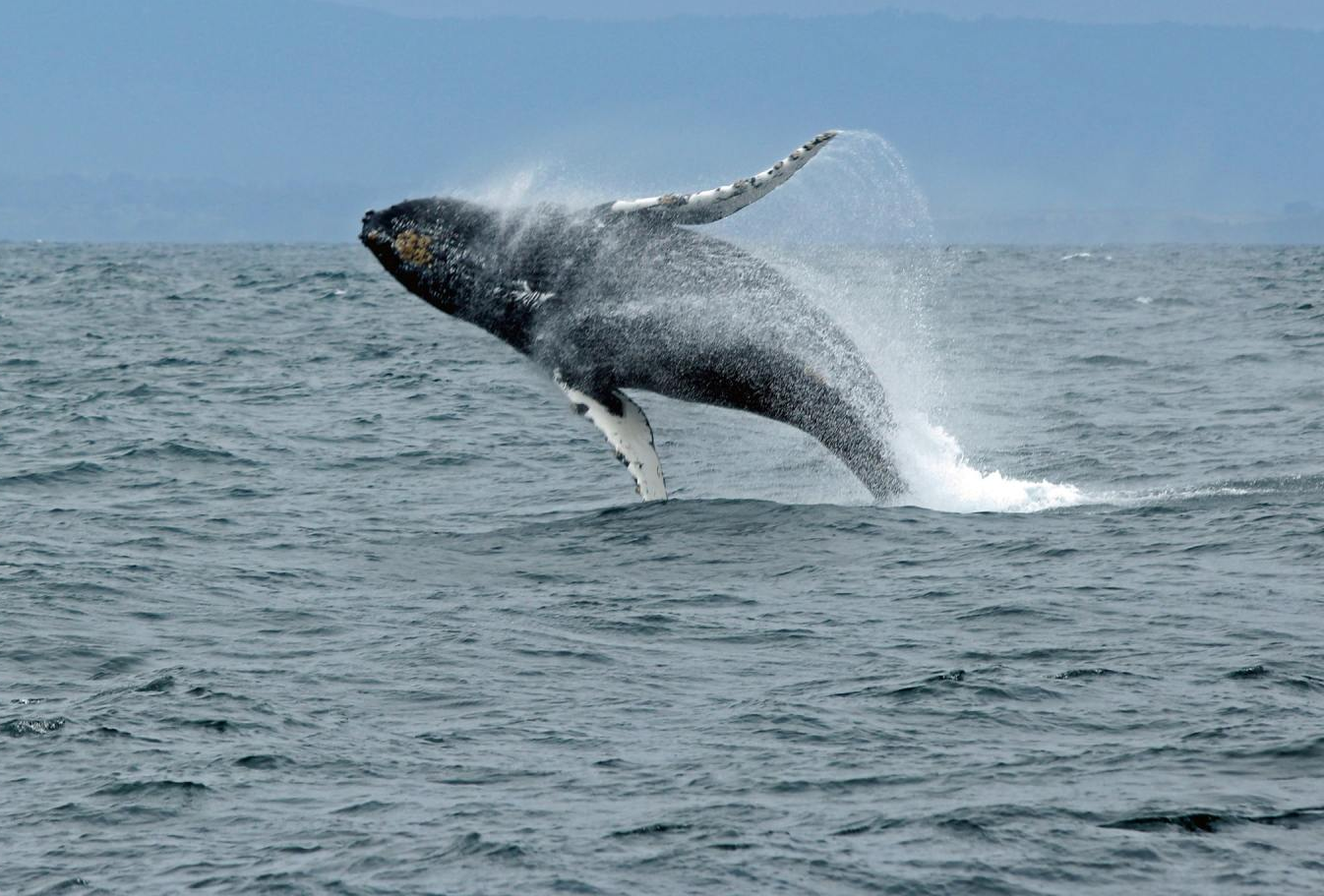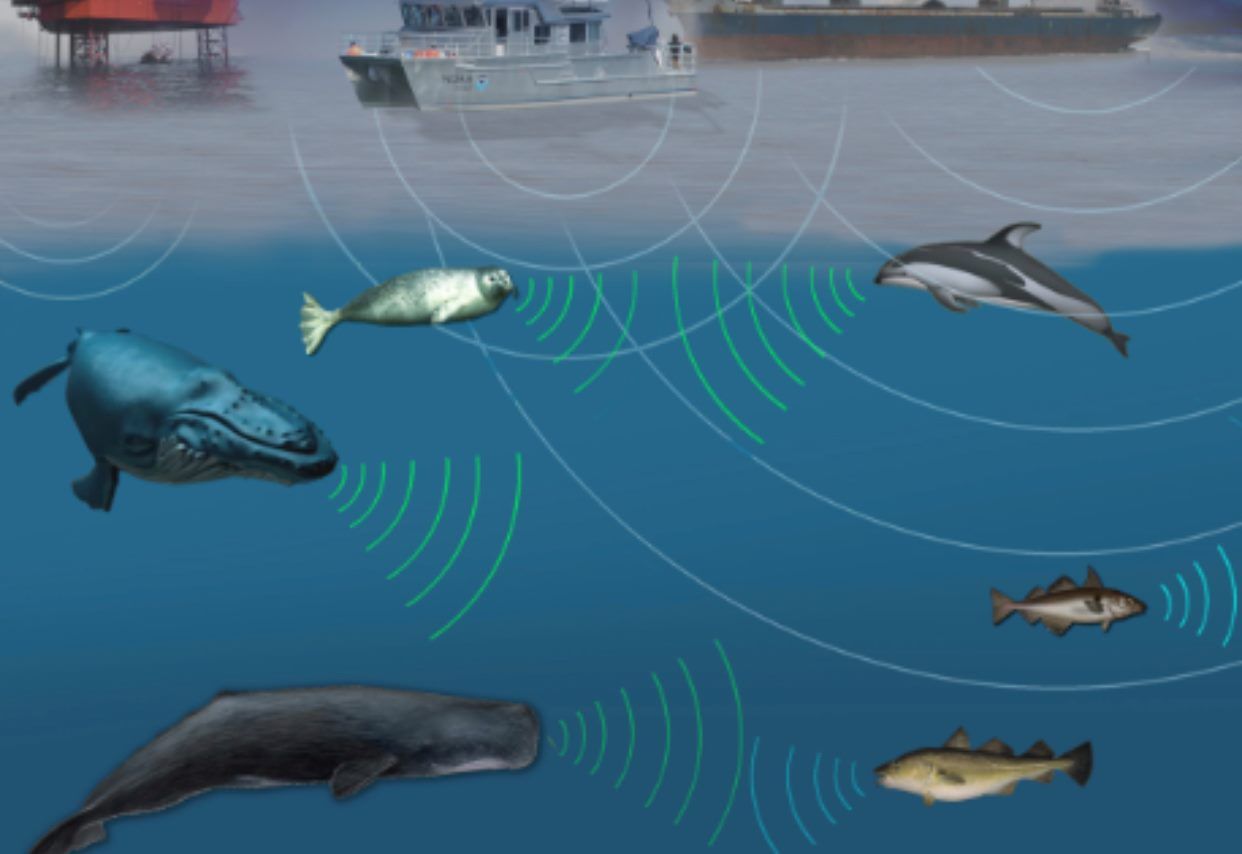Whales are Enjoying a Quiet Ocean due to COVID-19 Lockdown Measures.
Whales and dolphins are enjoying quieter oceans as shipping is reduced due to coronavirus lockdown measures. Scientists from Ocean Networks Canada report a significant drop in low-frequency sound associated with ships.
The world has gone quiet in recent weeks. Busy roadways that were once filled bumper to bumper, packed sidewalks, and chattering pedestrians have been cleared out, similarly its gone quiet on the ocean too with hardly any boats on the water. It seems the entire world has been put on pause, and while the resulting silence is eery for some, it is a blessing for marine wildlife. Many scientists are taking advantage of the silence to conduct un- precedented research.
Whales are known to be disturbed by the noise of passing cargo and cruise ships, ceasing their vocalisations until ships have passed. New evidence suggests that there has been a significant reduction in ocean noise pollution due to coronavirus lockdown measures, which has led researchers to predict the pandemic is good news for whales and other marine mammals. Assistant professor David Barclay at Dalhousie University has written a paper reviewing the phenomena examining sound power from real-time underwater sound signals from seabed observations - having developed a way to measure "loudness" in two sites - one inshore and one offshore. He found a significant drop in noise from both locations. From January 1st to April 1st, a reduction of 4 - 5 decibels around Vancouver port which correlates with economic data of a reduction or drop of around 20% in imports and exports over the same period. The offshore site was around 60km from the shipping lanes and in 3,000 meters depth of water and showed a drop of 1.5 decibels or 15% decrease in sound power.
Shipping can cause noise pollution that can effect whales and dolphins and cause them to move out of important areas for feeding or reproducing, for example, propellers slicing through the water create a wake and with it a deep rumbling sound that can travel for hundreds or even thousands of kilometres.
Underwater noise from anthropogenic sources has increased over the last 50 years, but a ground- breaking study conducted after the 9/11 attacks in the U.S. which examined the effect of decreasing noise in the Bay of Fundy, Canada when ship traffic was greatly reduced showed that ship noise was associated with chronic stress in baleen whales.
Other researchers, such as Dr. Mark Jessop from the School of Biological Environmental and Earth System Sciences at University College Cork (UCC), Ireland have been studying the effects of noise pollution on cetaceans, particularly the impacts of seismic surveys from oil and gas exploration. The noise pollution caused by seismic surveys causes whales to "spend more time and energy trying to communicate...by essentially screaming at each other" - Dr. Jessop explains.
Dr. Jessop and colleagues found a huge decrease in sightings of whales and dolphins when seismic work was being carried out. During seismic surveys, air guns are blasted every 10 - 15 seconds to develop a detailed geological picture of the ocean floor. In addition, the effects from noise pollution aren't just felt by marine mammals, fish and marine invertebrates such as crabs have also been shown to change their behaviour when noise levels rise. For example, they show reduced feeding capacity and are less likely to detect predators.
Another study published in the Journal of Experimental Biology in 2017 as part of the BRAHSS (Behavioural Response of Humpback whales to Seismic Surveys) project, which instead of examining loudness, looked at the effect of proximity of humpback whales to air guns, found that whales slowed their migratory speed, deviated around the vessel towing the air guns by 500 meters and were effected up to 3km away at sound levels of 140 decibels.
Even alternatives to oil and gas, such as offshore wind-farms can introduce noise into the oceans and can impact marine mammals. For example, the construction of a wind-farm requires pile driving, which essentially bashes huge columns into the seabed to create the base platform for turbines.
However difficult these times have been on people around the world, it is reassuring to know that some benefit from our lockdown measures, besides reducing the spread of deadly COVID-19, is evident for our planets wildlife.
© Ocean Research & Conservation Ireland (O.R.C.Ireland) and www.orcireland.ie , est. 2017. If you like our blogs on the latest news in marine science and would like to support our work, visit www.orcireland.ie to become a member, to volunteer or to make a donation today. This article has been composed based on credible sources.
References:
Dunlop, R.A., Noad, M.J., McCauley, R.D., Scott-Hayward, L., Kneist, E., Slade, R., Paton, D., Cato, D.C. (2017). Determining the behavioural dose-response relationship of marine mammals to airgun noise and source proximity. Journal of Experimental Biology
, 220
, 2878 - 2886.
Rolland, R. M., Parks, S.E., Hunt, K.E., Castellote, M., Corkeron, P.J., Nowacek, D.P., Wasser, S.K., Kraus, S.D., (2012). Evidence that ship noise increases stress in right whales. The Royal Society of Publishing
, https://doi.org/10.1098/rspb.2011.2429
www.oceannetworks.ca
SHARE THIS ARTICLE















